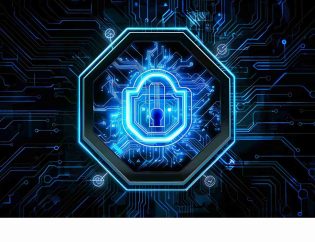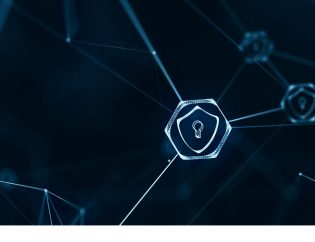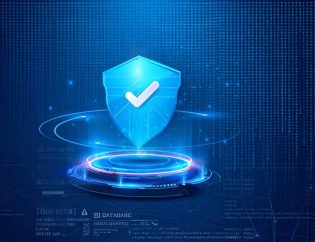
Introduction
What are cybersecurity solutions? In our increasingly digital world, understanding cybersecurity solutions is crucial for protecting sensitive data and ensuring the integrity of information systems. As cyber threats grow more sophisticated, it becomes even more important to recognize the significance of these solutions. This article will explore the effectiveness and necessity of cybersecurity solutions in today’s digital landscape, providing insights into how they safeguard organizations against potential risks.
Understanding Cybersecurity Solutions
Cybersecurity solutions include a variety of tools, strategies and services designed to protect networks, devices and data from cyber threats. As technology continues to transform various sectors, organizations have become increasingly reliant on digital systems. Consequently, this dependence has made them more vulnerable to cyberattacks. Given this shift, the importance of cybersecurity solutions has grown significantly, as they provide essential defenses against unauthorized access, data breaches and other cyber risks.
To fully understand the impact of cybersecurity solutions, it’s important to recognize their role in securing not just individual systems but also entire organizational infrastructures. Effective cybersecurity solutions help reduce the risks associated with cyber threats, enabling businesses to operate smoothly without the constant worry of data loss or breaches. By implementing these solutions, organizations can maintain trust and ensure the safety of their information.
What Exactly Does Cybersecurity Do?
Cybersecurity serves multiple purposes within an organization, focusing on the protection of information and systems. At its core, cybersecurity is about ensuring the confidentiality, integrity and availability of data. This can be broken down into three main components:
Confidentiality:
Ensuring that sensitive information is accessible only to those authorized to view it. This prevents unauthorized users from accessing confidential data, thereby protecting the organization’s intellectual property.
Integrity:
Maintaining the accuracy and completeness of data. This ensures that information remains reliable and trustworthy, which is crucial for effective decision-making within an organization.
Availability:
Guaranteeing that authorized users have access to information and resources when needed. This is essential for maintaining business continuity, especially in critical situations.
Overall, understanding what exactly does cybersecurity do allows organizations to implement measures that effectively protect their digital assets and maintain operational efficiency.
What Are Cybersecurity Solutions?
Cybersecurity solutions can be categorized into various types, each addressing specific aspects of security. Some common types of cybersecurity solutions include:
Network Security:
This involves safeguarding the integrity of networks by implementing measures such as firewalls, intrusion detection systems and secure access controls. Essentially, network security focuses on preventing unauthorized access while ensuring that only trusted users can connect to the network. By doing so, it creates a safer and more reliable digital environment.
Endpoint Security:
This area focuses on securing individual devices, like computers, smartphones and tablets, from potential threats. Moreover, with the rise of remote work, endpoint security has become essential for protecting devices that connect to corporate networks. By ensuring these devices are secure, organizations can better defend against cyber risks.
Application Security:
This approach protects software applications at every stage of their lifecycle, from development to deployment. By identifying vulnerabilities early and applying security measures during development, organizations can effectively reduce the risk of exploitation. Consequently, this proactive stance ensures that the final product is more secure and resilient against potential threats.
Data Security:
This includes measures to protect data whether it’s stored or being transmitted. For example, common methods used to secure sensitive information are encryption, access controls, and data masking. These techniques work together to ensure that your data remains safe and accessible only to authorized users.
Understanding what are cybersecurity solutions helps organizations choose the right tools and strategies to defend against an ever-evolving threat landscape.
Bullet Points on Cybersecurity Solutions
- Comprehensive Protection: Cybersecurity solutions offer layered security measures that address multiple threat vectors.
- Scalability: Solutions can be adapted as the organization grows, ensuring that security measures remain effective.
- Regulatory Compliance: Implementing the right cybersecurity solutions helps organizations comply with industry regulations and standards.
Types of Cybersecurity Services
Cybersecurity services vary widely, focusing on protecting digital assets from threats. Here are some essential services organizations may consider:
Security Audits:
Comprehensive evaluations of an organization’s security posture, identifying vulnerabilities and areas for improvement.
Penetration Testing:
Simulated cyberattacks that test the effectiveness of security measures and help identify weaknesses before real threats can exploit them.
Security Awareness Training:
Educating employees about best practices and threat awareness, fostering a culture of security within the organization.
Managed Security Services:
Outsourced monitoring and management of security solutions, allowing organizations to focus on their core activities while experts handle security.
By leveraging what are cybersecurity services, businesses can enhance their overall security posture and reduce risks associated with cyber threats.
Importance of Cybersecurity Solutions
The importance of cybersecurity solutions is critical in today’s connected digital world. As cyber threats become more advanced, organizations need to prioritize security to protect their data and maintain their reputation. Here are some key reasons why cybersecurity solutions are essential:
Risk Management:
Effective cybersecurity solutions help organizations identify and mitigate risks before they escalate into severe incidents.
Data Integrity:
These solutions ensure that data remains accurate, consistent and trustworthy throughout its lifecycle, enabling better decision-making.
Regulatory Compliance:
Many industries have specific regulations that require organizations to implement robust security measures. Compliance with these regulations not only avoids legal penalties but also builds trust with clients and stakeholders.
Moreover, as the frequency of cyberattacks continues to rise, the consequences of neglecting cybersecurity can be devastating. Companies that experience data breaches often face financial losses, legal repercussions and damage to their reputation. Hence, investing in cybersecurity solutions is not just a precaution; it is a fundamental business necessity.
Common Cybersecurity Challenges
While implementing cybersecurity solutions is crucial, organizations also face several challenges in their efforts to maintain security. Some of these challenges include:
Evolving Threats:
Cyber threats are constantly changing, making it difficult for organizations to keep up with the latest attack methods.
Insufficient Resources:
Many organizations lack the budget or personnel to effectively implement and manage comprehensive cybersecurity solutions.
User Awareness:
Employees often unknowingly contribute to security risks through poor practices, such as using weak passwords or falling for phishing attacks.
Compliance Pressure:
Organizations must navigate various regulations and standards, which can be complex and resource-intensive.
By acknowledging these challenges, businesses can develop targeted strategies to enhance their cybersecurity measures and reduce vulnerabilities.
Customer Testimonial
“Since we partnered with Hyper Secure for our cybersecurity solutions, we have seen a significant improvement in our security posture. Their comprehensive approach and dedicated support have made a noticeable difference for our organization.”– John Smith, IT Manager
Conclusion
In conclusion, understanding what are cybersecurity solutions is crucial for navigating today’s complex digital landscape. At Hyper Secure, a leading cybersecurity services company, we specialize in providing comprehensive cybersecurity solutions tailored to meet the needs of modern organizations. Our expertise ensures your digital assets are protected, allowing you to focus on your core business operations without worrying about security threats.
FAQs
1. What is cybersecurity?
Cybersecurity involves protecting systems, networks and data from digital attacks and unauthorized access, ensuring information security.
2. What are cybersecurity solutions?
Cybersecurity solutions encompass tools and strategies designed to secure digital assets and protect against cyber threats.
3. How do cybersecurity solutions work?
They work by identifying threats, protecting sensitive data and providing incident response capabilities to mitigate risks.
4. What are cyber security services?
Cybersecurity services include monitoring, consulting and implementing security measures to protect digital assets from various threats.
5. What is cybersecurity software?
Cybersecurity software refers to applications designed to protect systems from malware, intrusions and data breaches, enhancing overall security.








